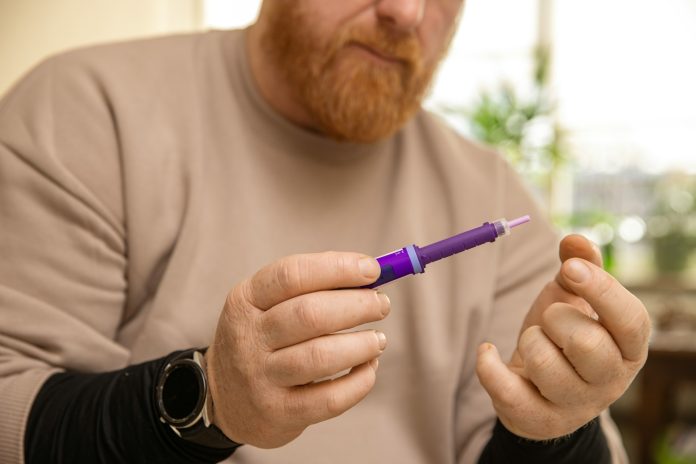
New research suggests that changes in blood sugar and other metabolic health factors may have a bigger impact on men’s reproductive and sexual health as they age than previously thought.
The study was presented at ENDO 2025, the Endocrine Society’s annual meeting in San Francisco.
For many years, declining testosterone levels and older age were believed to be the main reasons for changes in men’s sexual functioning. However, Dr. Michael Zitzmann, a professor and medical doctor at University Hospital in Muenster, Germany, says the story is more complex.
“Our research shows that even small increases in blood sugar, not just aging or testosterone levels, are linked to changes in sexual health,” he said. “This means men can make lifestyle changes to protect their reproductive health.”
The study followed healthy men aged 18 to 85 over six years, starting in 2014 and ending in 2020. None of the participants had diabetes, heart disease, or cancer. The researchers measured semen quality, hormone levels, erectile function, and metabolic health, including body mass index (BMI) and blood sugar levels based on HbA1c tests.
The results were surprising. Most hormone levels and semen quality stayed within normal ranges throughout the study. However, sperm movement and erectile function were lower in men who had slightly higher blood sugar levels—even though their HbA1c levels were still below the 6.5% mark used to diagnose diabetes.
Interestingly, testosterone levels did not directly affect erectile performance, but they did relate to sex drive. Men with higher testosterone reported better libido, even though their ability to get or maintain an erection didn’t seem to be affected by testosterone alone.
The key takeaway is that even modest metabolic changes, like a small rise in blood sugar, can influence male sexual health. Dr. Zitzmann hopes these findings will encourage men to take steps—like improving diet, exercising regularly, and seeking medical advice—to maintain their sexual and reproductive health as they age.
This study is part of a larger research project known as the FAME 2.0 study and could help doctors create better health plans for aging men who want to preserve their sexual well-being.
If you care about diabetes, please read studies that MIND diet may reduce risk of vision loss disease, and Vitamin D could benefit people with diabetic neuropathic pain.
For more information about diabetes, please see recent studies that Vitamin E could help reduce blood sugar and insulin resistance in diabetes, and results showing eating eggs in a healthy diet may reduce risks of diabetes, high blood pressure.
Copyright © 2025 Knowridge Science Report. All rights reserved.



